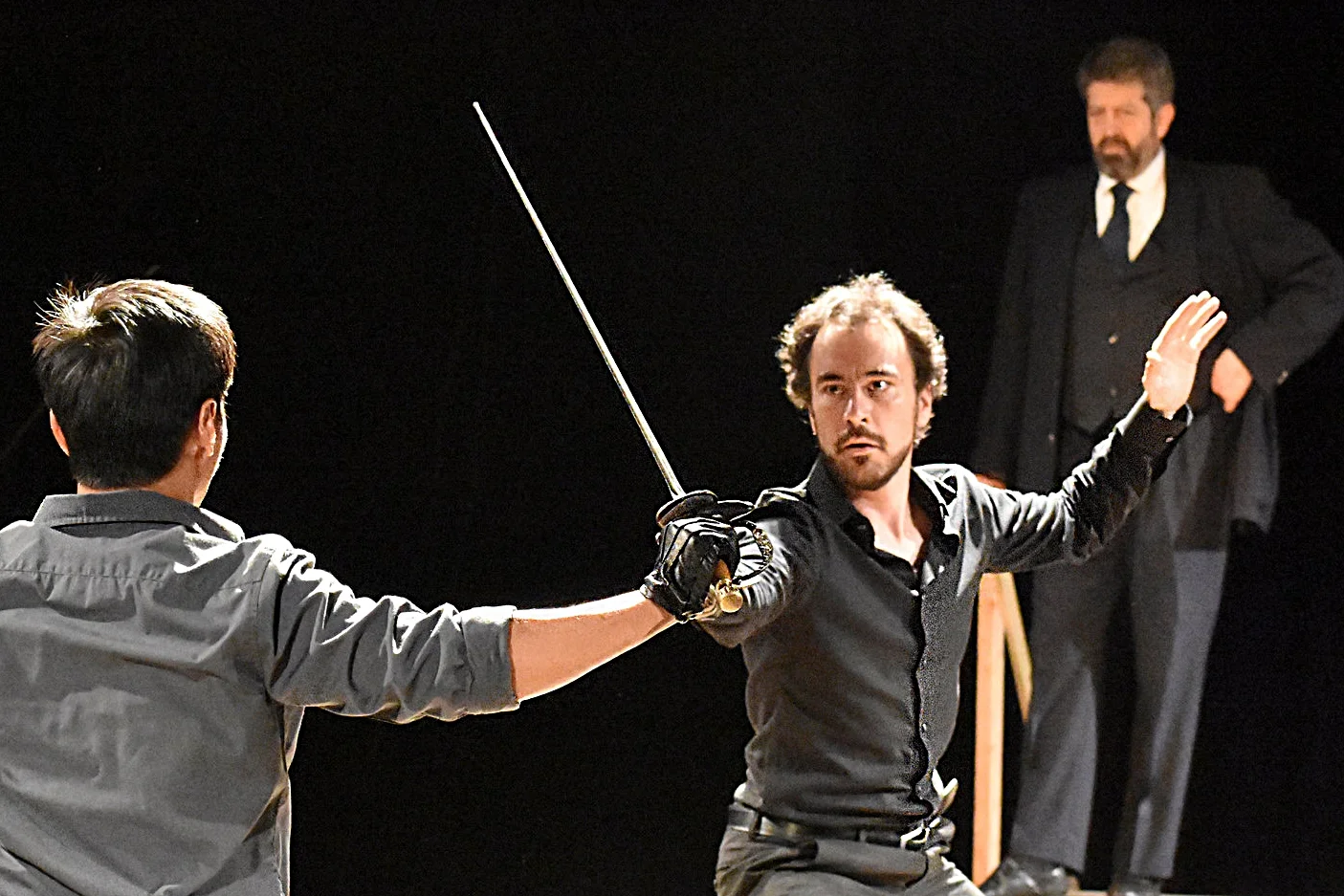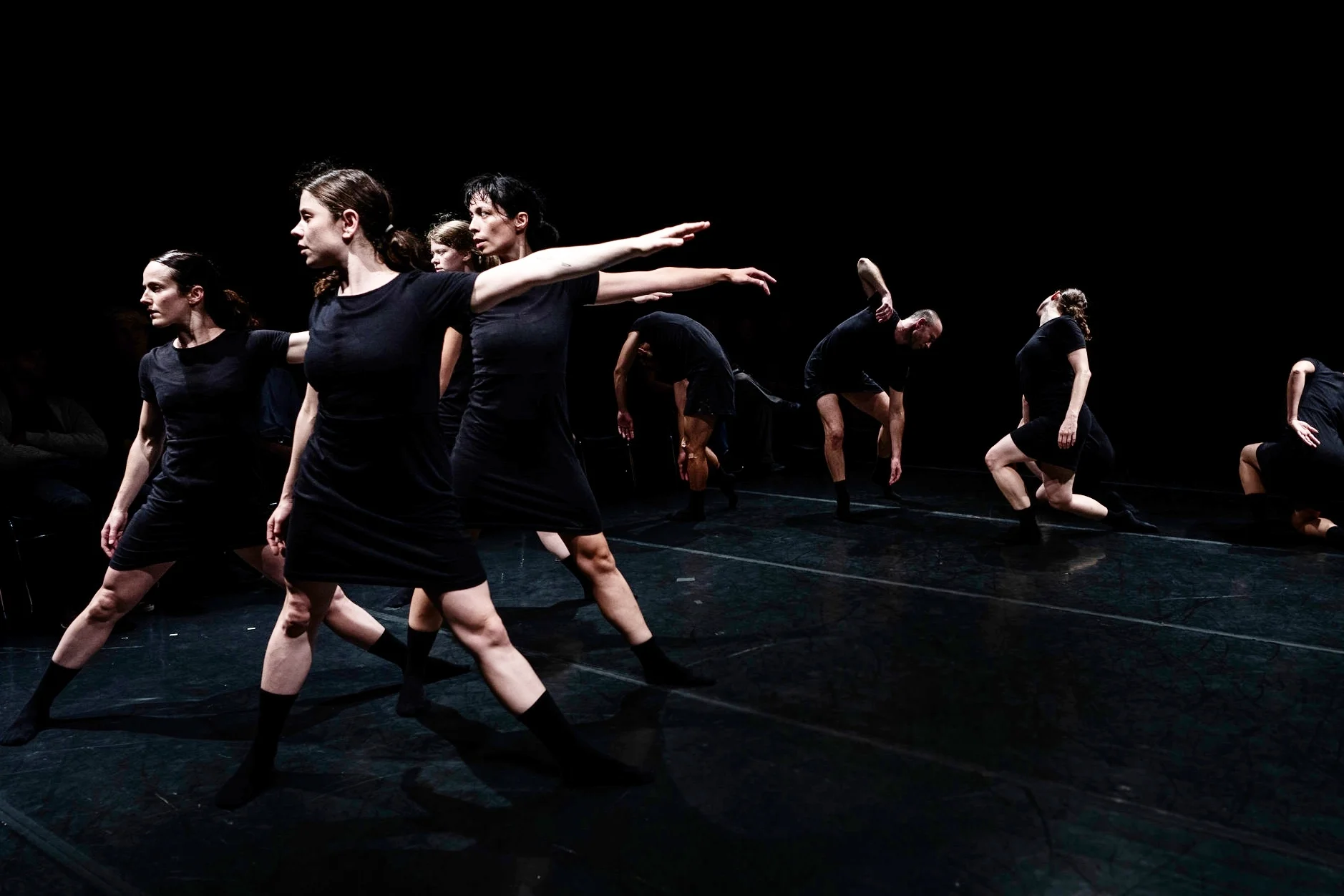If An Enemy of the People is a battle about truth, both play and production relentlessly pursue its aesthetic correlative: how to depict reality. Today, Ibsen’s realism has become—in a greatly diluted form—ours. By embracing aggressive, non-realistic staging techniques, Ostemeier re-imagines Ibsen’s most radical goals of representing the world, and in fact demands that his production make us feel the shock of it, the shock of what is actually in front of us.
Read MoreYou should run to the Ubuntu Theater Project’s Hamlet, because what you’ll see for the first two hours of this three-hour production is an incredibly clear, passionate, at times deranged, epic staging of Shakespeare’s greatest tragedy. Its anger seems ripped from the streets and placed right on stage, but not in a didactic or direct way. Sometimes clarity is oblique and attacks us from behind. But what’s in front of us burns with an intensity so ridiculous that parts of it will make you cry.
Read MoreAlmost everything in Sweat is a product of subject matter and situation. Only at the edges of the drama do we get anything close to human imagination. You see glimpses of life in some of the minor characters: the drunk Jessie who just wants a kiss on her birthday; Evan, a parole officer with a surprisingly humane and realistic view of the world; and Brucie, Cynthia’s drug addled ex, who may be the most interesting character on stage and certainly the freest.
Thrust to the side of the primary story, these bit players have some room to breathe. And because of that they’re kind of fascinating. Or put another way: the further the play gets away from the central drama, the more it roils with actual life.
Read MoreI can’t help but think that there’s another play lurking in Oslo, nastier, more alive, less fair-minded, and memorable enough to force the most jaded of us to care. Because right now, in this Oslo, what we care about are negotiations. They could have been between East Timor and Australia, or a couple of boys trading baseball cards. There’s a way in which the Israelis and Palestinians are incidental to the entire experience.
Read MoreWhat I’m going to say about Cutting Ball’s Uncle Vanya is completely unrealistic and unfair, but the problem here is rehearsal time and how theaters produce work. The production feels like a very well-rehearsed first draft, where everything was attempted and nothing rejected. You wonder what might have happened if they had spent an equal amount of time with a scalpel, paring closer and closer to the bone until every effect was either excised or found its way into the blood of Chekhov’s stunning play. There are pleasures here, but not enough discipline for real and sustained success.
Read MoreGiven the title of Charles Slender-White’s sly, beautiful immersive dance receiving its world premiere at CounterPulse for his company FACT/SF, you can’t help but think of a trip to heaven, but that’s a mistake of perception, of climbing stairs and finding yourself in the rafters looking down. death politely brushes aside those easy clichés of the afterlife. This is not going to be about our experience, our feelings, or our fears. It’s about souls that are radically different than ours.
Read MoreEnglish playwright debbie tucker green’s dirty butterfly, receiving its Bay Area premiere with Anton’s Well Theater Company under Robert Estes astute direction, tries to radically represent two contrary modes of consciousness: the hazy symbolism of our imaginations and the horrid state of being alert to every aspect of reality.
Read MoreThe whole effect is hypnotizing. Young Jean Lee places us in a position where we, the jaded non-churchgoing audiences of San Francisco and New York, wish for some aspect of a religious service. What’s nice is that she reminds us that with that wish comes responsibilities, morals, and an acceptance that we aren’t the center of the world.
Read MoreThose familiar with Lucas Hnath’s work know that it’s a real possibility that his Part 2 could challenge or even surpass Ibsen’s original. Both playwrights share a moral complexity and outrage that might come down to a simple equation: when it comes to people anything can happen.
Read MoreThe aesthetic failure of plays like Detroit 67 strikes a double blow. One, it reduces and harnesses the real world to mere sensation, empty emotions, and false gestures of importance; and two, in doing so it blinds us from worlds and thinking that we need to confront and understand. Sometimes there is nothing worse than good intentions gone wrong.I’d like someone to defend this play. If you feel like it, I’d love for you, unknown person, to challenge this review.
Read More








